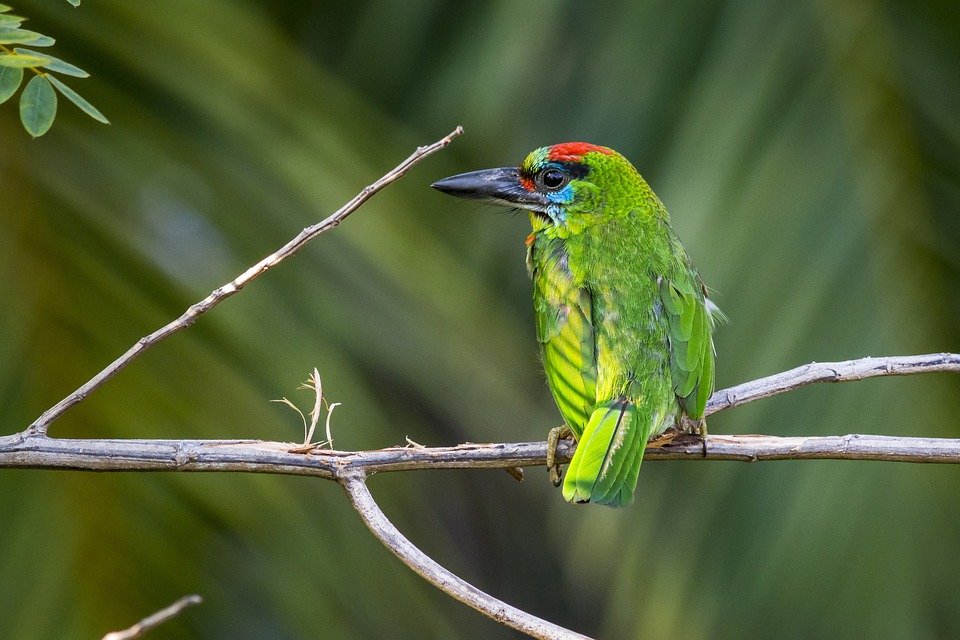Parrots are known for their vocal nature and ability to mimic sounds, which can be endearing during the day. However, when they continue their vocalizations at night, it can disrupt our sleep patterns and become a nuisance. Thankfully, there are ways to discourage excessive night calling in parrots while maintaining a harmonious living environment. In this article, we will explore effective techniques to address this behavior and provide answers to frequently asked questions.
Understanding Parrot Night Calling
Before we delve into the methods to discourage excessive night calling, it is important to understand why parrots engage in this behavior. Parrots are diurnal creatures, meaning they are naturally active during the day and rest during the night. However, some parrots may become accustomed to their human family’s routines and interact with them during the evening, leading to night calling.
Parrots are social animals and can become anxious or lonely when left alone at night. Night calling may serve as a way for parrots to seek attention or express their discomfort. Additionally, certain parrot species have instinctual vocalizations at specific times during the night, which can be challenging to modify.
Creating a Comfortable Sleeping Environment
One of the first steps in discouraging excessive night calling is to ensure your parrot has a comfortable sleeping environment. Here are some key factors to consider:
1. Darkness: Create a dark environment in your parrot’s sleeping area by using curtains or blinds to block out external light sources. This will mimic the natural dark conditions that signal bedtime for parrots.
2. Quietness: Minimize noise in the surrounding area during your parrot’s sleeping hours. If necessary, use white noise machines or fans to drown out any disruptive sounds that may trigger vocalizations.
3. Temperature: Maintain a suitable temperature in your parrot’s sleeping area, as extreme temperature changes can disturb their sleep. Consult a veterinarian to determine the ideal temperature range for your parrot’s species.
4. Cage Placement: Consider relocating your parrot’s cage to a quieter part of the house during the night. This can help reduce external stimuli that may contribute to night calling.
Establishing a Consistent Routine
Parrots thrive on routine and predictability. Establishing a consistent daily schedule can help regulate their behavior and reduce excessive night calling. Here’s how you can create a routine:
1. Daytime Interaction: Engage and interact with your parrot during the daytime. Provide mental and physical stimulation through playtime, training sessions, and socialization.
2. Evening Wind Down: As evening approaches, gradually reduce your parrot’s level of interaction and activity. This will signal to your parrot that it is time to wind down and prepare for sleep.
3. Bedtime Ritual: Create a relaxing bedtime ritual for your parrot. This can include dimming the lights, covering the cage partially, and providing a small treat or favorite toy before saying goodnight.
4. Consistent Wake-Up Time: Establish a consistent wake-up time for your parrot. This helps regulate their internal clock and avoids reinforcing night calling behavior.
Addressing Attention-Seeking Behavior
If your parrot’s night calling is primarily attention-seeking behavior, it is important to address it appropriately. Here are some strategies to discourage this behavior:
1. Ignoring Night Calling: When your parrot engages in excessive vocalizations at night, avoid giving them attention or responding to their calls. Responding to their demands may reinforce the behavior and encourage them to continue.
2. Positive Reinforcement: Reinforce quiet behavior during the night by providing praise, treats, or gentle words when your parrot remains quiet. This encourages them to associate silence with positive outcomes.
3. Nighttime Distractions: Provide your parrot with toys, puzzles, or foraging activities in their cage before bedtime. These distractions can keep them occupied and reduce the likelihood of excessive vocalizations.
4. Behavioral Training: Consider implementing behavioral training techniques, such as clicker training or target training, to redirect your parrot’s vocalizations during the night to more desirable behaviors. Consult with an avian behaviorist for guidance.
Frequently Asked Questions (FAQs)
1. Q: Is it normal for parrots to vocalize at night?
A: While some vocalizations are normal, excessive night calling may indicate discomfort or behavioral issues that should be addressed.
2. Q: Will covering the cage completely at night help stop vocalizations?
A: While covering the cage can create a darker environment, it might not solve the underlying cause of night calling. Combine cage covering with other strategies to address the behavior effectively.
3. Q: How long does it take for parrots to adjust to a new routine?
A: Parrots are adaptable, but the adjustment period can vary depending on the individual bird. Be patient and consistent with the new routine, and you should see positive changes over time.
4. Q: Should I punish my parrot for excessive night calling?
A: Punishment is not recommended, as it can lead to fear or aggression in parrots. Focus on positive reinforcement and redirection techniques instead.
Remember, it is essential to approach parrot behavior modification with patience and understanding. If the excessive night calling persists despite your efforts, consult with an avian veterinarian or an experienced avian behaviorist for further guidance tailored to your parrot’s specific needs.









